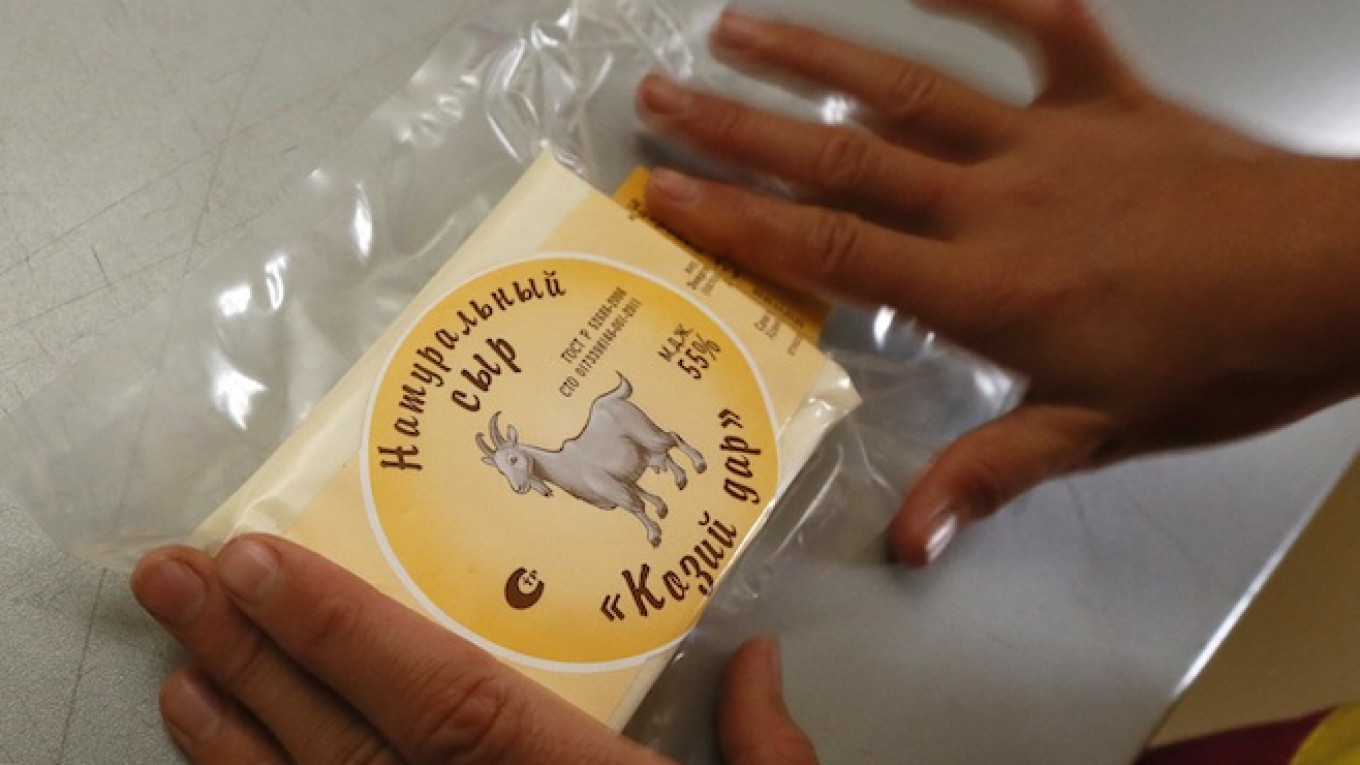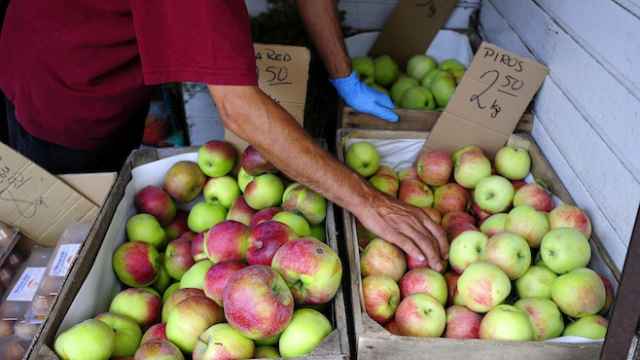The European Commission announced financial support for exporters of dairy products hit by Russia's ban on Western food imports, adding to emergency measures already taken to help fruit and vegetable producers.
Moscow this month imposed a one-year embargo on meat, fish, dairy, fruit and vegetables from the U.S., the EU, Canada, Australia and Norway in retaliation for Western economic sanctions over Moscow's involvement in the Ukraine crisis.
Agricultural experts from all 28 EU countries have held a series of crisis talks, and agricultural ministers will meet on Sept. 5 to address the issues of finding alternative markets and compensating producers.
Following the latest internal meeting, the commission, the EU executive, said Thursday it would pay toward storage costs for taking surplus products off the market for three to seven months.
The support will cover butter, skimmed milk powder and certain cheeses. The choice of precisely which ones is still under debate as not all are suitable for the storage, which can alleviate the supply glut.
"Price signals on the European dairy market show that the Russian ban is starting to hit this sector," EU Agriculture Commissioner Dacian Ciolos said.
"In a number of member states, export earnings are being lost and new outlets need to be found. The European dairy sector needs time and help to adapt."
The commission did not specify the amount of money being set aside for the dairy sector. EU officials, speaking on condition of anonymity, said such measures would have a potential cost of 10 million to 20 million euros ($13 million to $26 million).
Earlier this month, the commission announced it would provide up to 125 million euros to EU farmers to help them cope with a glut of fruit and vegetables, then seen as the most urgent problem.
Under the reformed Common Agricultural Policy, the commission has a total pot of some 420 million euros to compensate for market disruption.
Producers say the fund will not be enough to offset the damage.
Finnish dairy cooperative Valio alone estimates that it stands to lose 240 million euros worth of exports to Russia.
In all, EU farm exports to Russia are worth about 11 billion euros annually, or about 10 percent of all EU agricultural sales.
Of this, Russia imported EU dairy products worth some 2.3 billion euros in 2013.
A Message from The Moscow Times:
Dear readers,
We are facing unprecedented challenges. Russia's Prosecutor General's Office has designated The Moscow Times as an "undesirable" organization, criminalizing our work and putting our staff at risk of prosecution. This follows our earlier unjust labeling as a "foreign agent."
These actions are direct attempts to silence independent journalism in Russia. The authorities claim our work "discredits the decisions of the Russian leadership." We see things differently: we strive to provide accurate, unbiased reporting on Russia.
We, the journalists of The Moscow Times, refuse to be silenced. But to continue our work, we need your help.
Your support, no matter how small, makes a world of difference. If you can, please support us monthly starting from just $2. It's quick to set up, and every contribution makes a significant impact.
By supporting The Moscow Times, you're defending open, independent journalism in the face of repression. Thank you for standing with us.
Remind me later.






